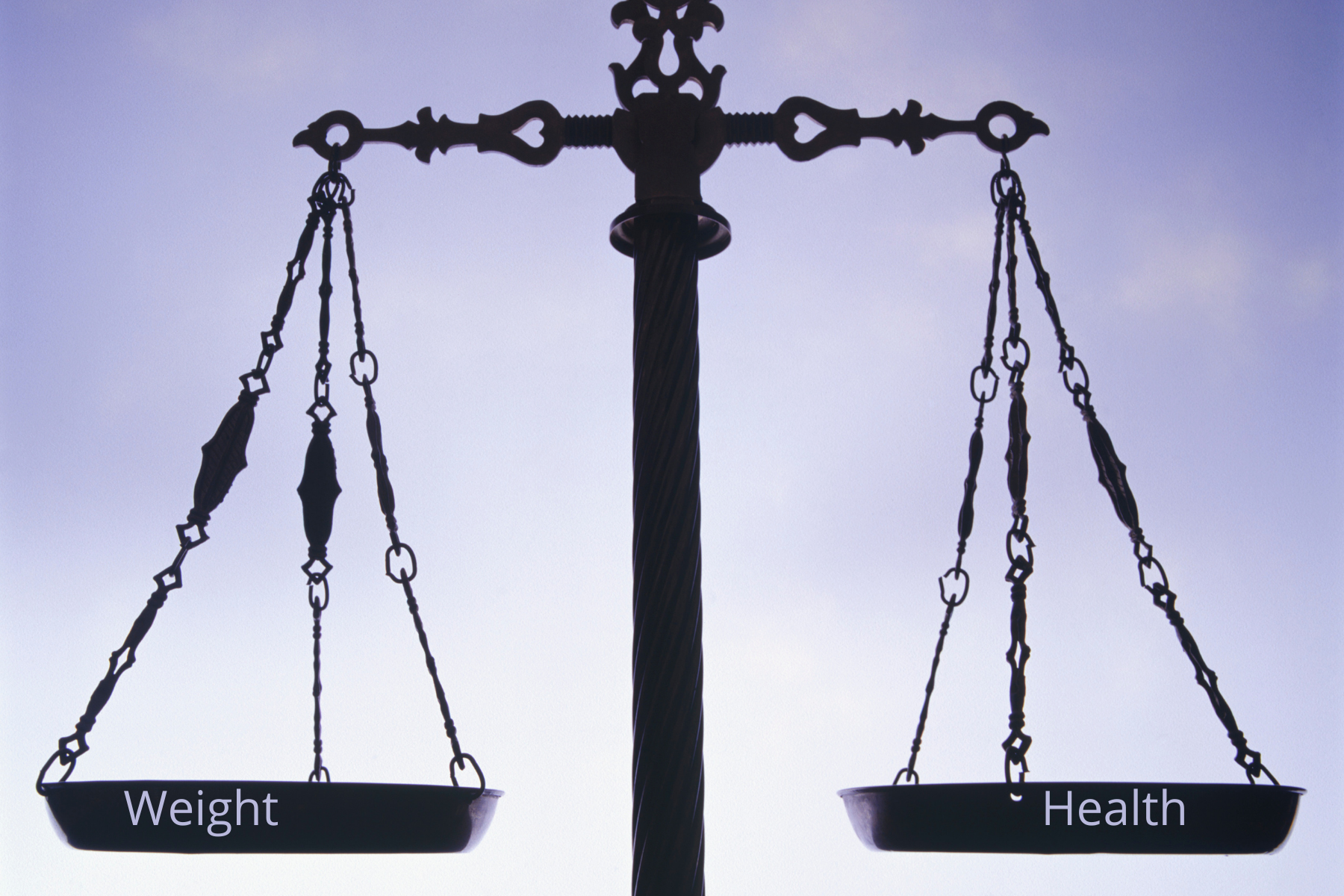Separating Weight from Health

A massive bugbear of mine!!! The war on obesity, the fat phobia, body shaming…. All so much blame on the person. As if someone in a larger body is selfish, greedy, lazy, has no self-esteem, no determination or will power.
Obesity is NOT an illness. Yes, it’s true that many people who are living in larger bodies may have illnesses or higher risk factors for illnesses, but that’s not as simple as “you’re fat, therefore your risk for x is higher”.
Fitness is a really important factor when looking at someone’s health and in fact being obese and fit reduces the risk factors for almost all diseases associated (wrongly) with obesity.
What’s more being in the BMI range of 24.5 to 30 is actually healthier than 18.5 to 24.5. Bet you didn’t know that, did you.?
I am a supporter of the ‘Health at Every Size Movement’. Every one of us deserves a healthcare system that affords us individual care and respect, investigating the root causes and never being dismissed based on what body size or weight we are.
I do not support the social norms that skinny = healthy. I’ve seen “Slim” in clinical practice time and time again, and I know first hand that it does not mean healthy or happy. Many “skinny” clients have patterns of disorders eating, restricting social interactions, missing periods, fertility challenges, hyperthyroidism, auto-immune diseases, hypotension, PCOS, dizziness, depression, anxiety, PMS, high cholesterol, migraines & headaches yet the medical field often considers this group to be overall healthier than someone above the weight normative range. I have witnessed and heard stories from many women who have been dismissed quickly by their doctors because they don’t fit into the ‘diagnosis box’ and are told to either lose weight or gain weight, without getting any additional support or understanding why the doctor might think weight is a factor in the first place. An example of weight bias I’ve heard recently was a new mum with smaller breasts, and a small body frame, was struggling to breastfeed her baby. Her GP told her that it was unlikely that her breasts were producing enough milk because they were “so small”…….
I know other expectant mums who were planning a vaginal birth, but were told it’s highly unlikely you’ll have the strength to have a vaginal birth because you’re too small. And before you say anything… these GPs were not men. Happily, mum went on to successfully feed their baby, and uncovered the real root which was identified by a lactation consultant. The second mum had a very happy home birth experience as she wanted and planned for.
On the flip side of the ‘skinny’ story, I see clients who are in larger bodies, (even slightly above BMI 25), being told they most to lose weight to improve many outcomes: get pregnant (very common with assisted fertility treatments), reduce blood pressure, reduce body aches and pains, resolve their IBS, depression, anxiety, hypothyroidism, osteoporosis, PCOS, endometriosis and so on.
In most cases, the underlining root cause came before the weight gain i.e. depression (and most diseases) might increase emotional and comfort eating. PCOS often driven by insulin resistance can increase cravings for carbs/sweets etc. Hypothyroidism, could be auto-immune and causing a slowdown of your metabolism. All 3 examples make it extremely difficult to lose fat at all and especially difficult to keep it off. We deserve personalised support and planning and the opportunity to address the root causes.
This is not an attack at GPs, consultants or the medical profession in general. It is from my experience and clinical experience.
The diet culture, health and wellness movement and food industry have driven us to be obsessed with size and not true health. We must look beyond the exterior and understand what’s going on inside the mind and body.

